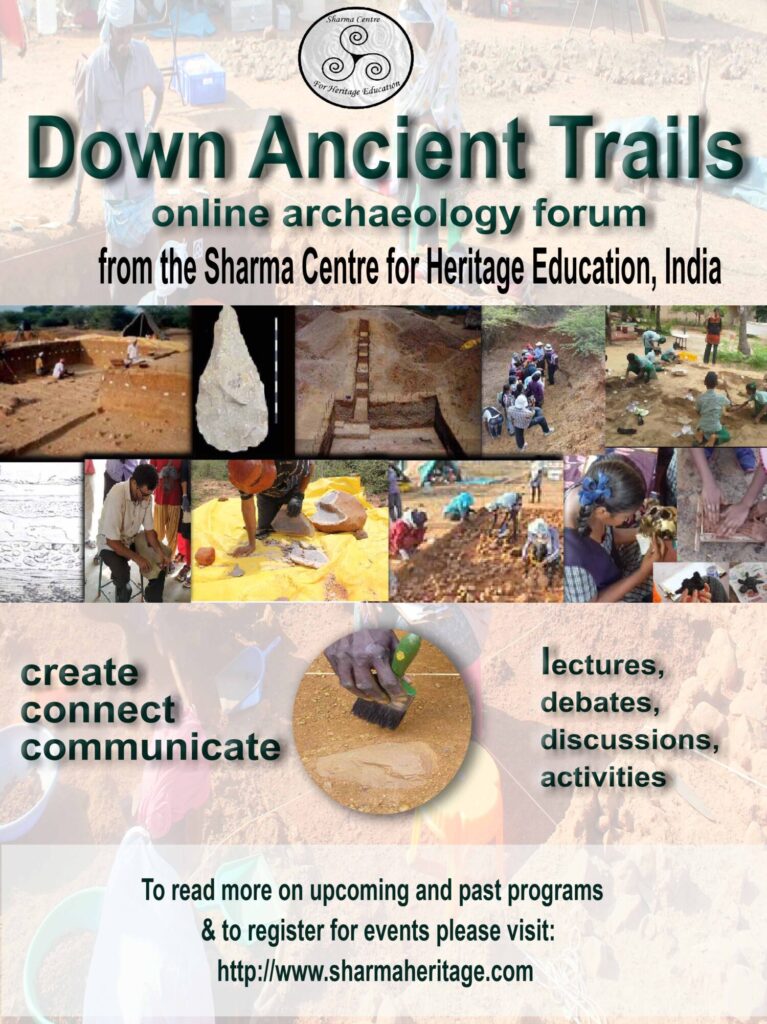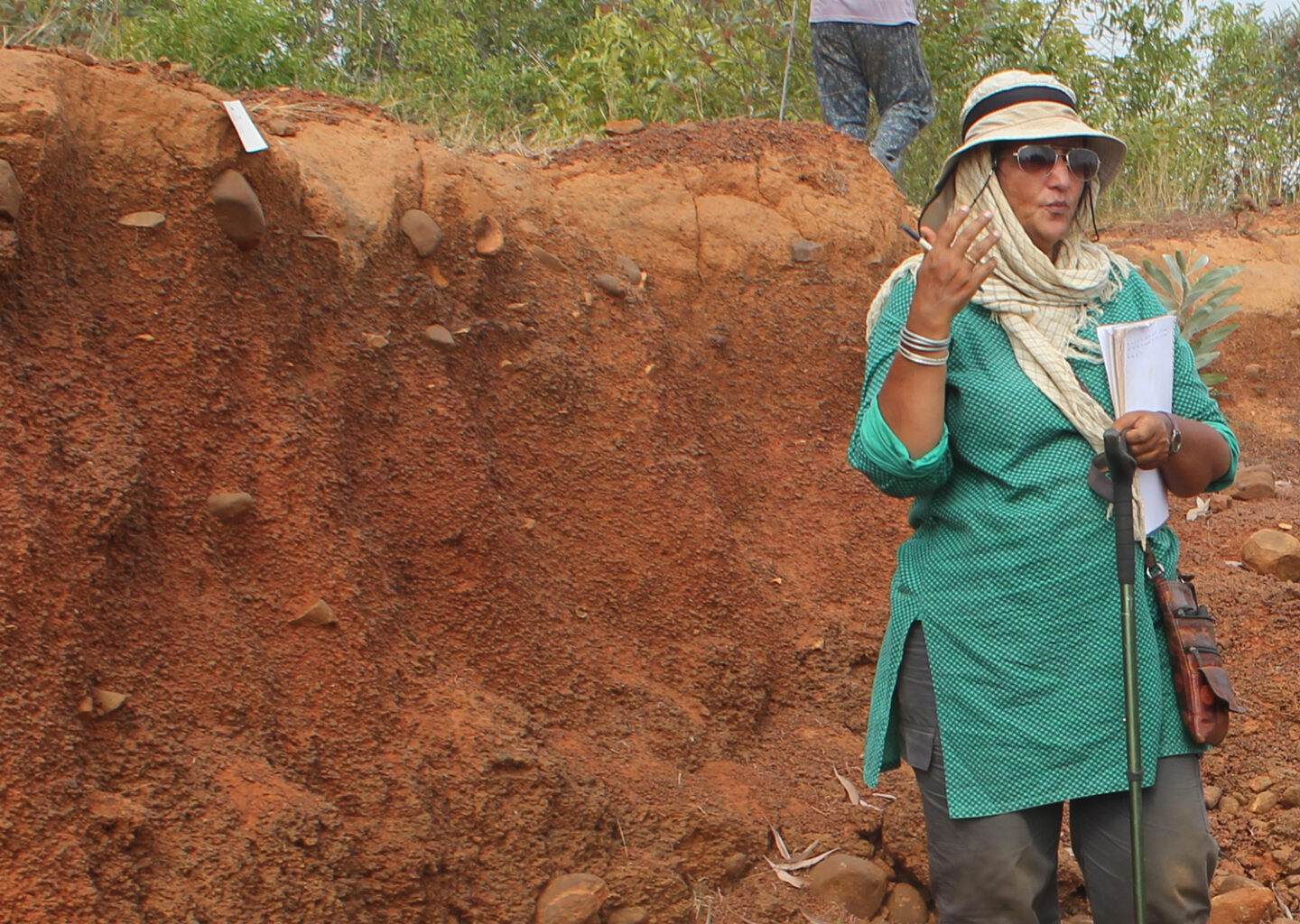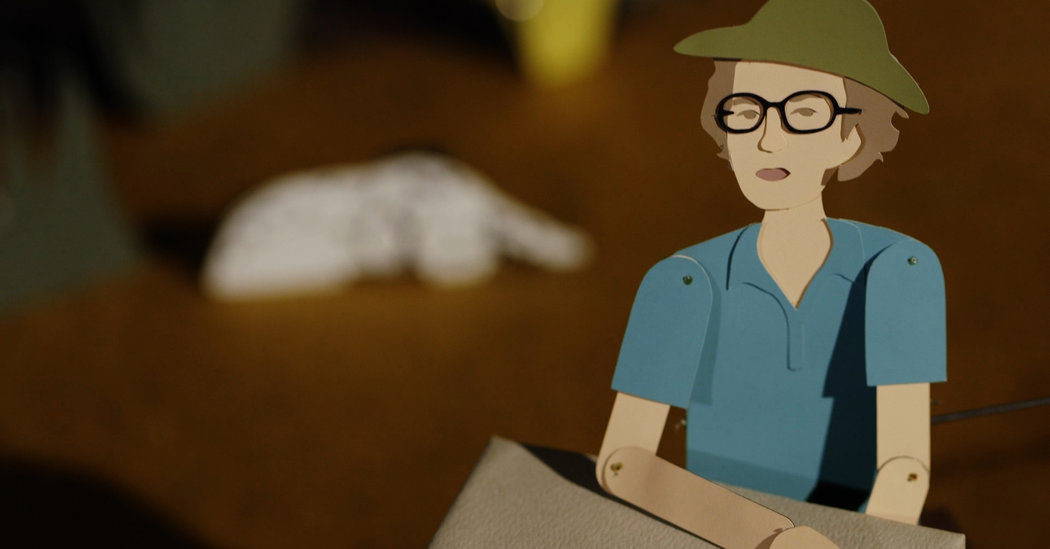Education | Lecture
By Shanti Pappu and Kumar Akhilesh
Sharma Centre for Heritage Education, India

We are locked down. Far from the excitement of new discoveries coming from our excavations, and far from the slow scrutiny of ancient artifacts, breathing life into silent stone tools lying in our lab.
While we are grappling with the new realities, we step back and observe the changing shapes of Indian archaeology in a virtual world. Indian archaeologists have always had an undeniably strong presence on social media which, in this Covid-19 era, has exploded into a vibrant collection of online lectures and classes, both open-access and with a fee.
Livestreamed lectures jostle for space in multiple online worlds, with speakers and organisers vying for time and attention, attempting for a while to turn their attention away from the sounds of misery and death out there in the “real” world.
On a long dreary evening on March 28th, we dreamt up an experiment. Soon after the first of the series of lockdowns began in India, our Centre brought together senior archaeologists from our research project (funded by The Leakey Foundation, among others), along with a group of young volunteer early career researchers who had participated in our excavations, to brainstorm topics of mutual interest.
We read papers, posed questions to experts, and got the more experienced among us to hold mini-workshops on archaeological software. Back from excavations, we missed the fun, fights, and fears of fieldwork, and we explored new ways to bring alive the essence of the hot and dusty landscapes and buried lives we seek to study.
We called this project: Down Ancient Trails, the term encompassing the mystery of unknown destinations, to which paths wind through space and time. The success of this little forum led us to experiment with hosting lectures and discussions, an unplanned and spontaneously evolving series, a forum for sharing knowledge and ideas, primarily aimed at young South Asian archaeologists.
We struggled to gain control of a totally different medium-as distant from the brushes and trowels of fieldwork as could be. For many, this shift to a totally virtual world was a new and undeniably anxiety-filled experience. And yet the series took off, with an unexpected enthusiasm on the part of the speakers and participants, with our collaborators from our Leakey-funded projects and other academics freely contributing their time and expertise.
Our small aim of reaching out to students grew new dimensions, bringing in scientists from a range of associated disciplines in geological and biosciences and geochronology, and also acquiring a global flavor.

From the Oldowan of North Africa, to Acheulian hominins of Gesher Benot Ya’aqov, and modern humans in SE Asia, from diatoms to the physics of luminescence dating, zooming onwards to the fabulous tradition of ancient zinc mining in India, we look forward to listening to new insights.
Down Ancient Trails began as an experiment, navigating the difficult transitions to new and strange ways of life, shifting skill sets and behavior. Amidst the anonymity of user names and boxed rows of faces, speakers search for a personal touch, combating the difficulty of speaking into a dead screen.
We are enabling this forum to take its own course, seeking collaborations to evolve new modules and establish creative ways of moving forward. It is now clear, as far wiser minds have predicted, that online archaeology will be an inevitable part of coursework and learning.
Confronting issues of accessibility, scale, sustainability, and skills development, major aspects of academic integrity will also need to be confronted. New behavioral rules of decorum and discourse amongst those with conflicting theories will need to evolve, lessons for which have already been the subject of much discourse as regards social media as a whole.
The complex web of dealing with group sizes and dynamics, the anonymity of the ‘chat mode’, and mental health issues will need to be factored in, with inexperienced academics confronted with the often harsh and unfeeling world of academic criticism in the open spaces of social media.
As the pandemic progresses, and in an uncertain future, online forums will flourish and develop their own identities and niches, hopefully uniting people in a common appreciation of Indian and global archaeological heritage. Eventually, when the personal touch of the traditional classroom returns in universities across the country, a synthesis of diverse modes of teaching and learning will settle into a routine, hesitant at first and yet evolving its own paths.
For a while, online conferences and workshops will replace traditional models, with new ‘out-of-the-box’ ways of replicating coffee-breaks and bonding. While, on the one hand, it relieves the enormous financial and organiztional burden of conference organization in India, on the other hand, it is in many ways totally alien to the social bonding and networking that forms such an essential part of conference-going academicians.
The relative ease of these modes of meeting will tend to shatter traditional hierarchies of organization, with huge implications for the South Asian academic world, leading to perhaps a democratization of learning that will arrive with its own issues.
How well these models will develop in the context of Indian archaeology is yet to be seen, with the principal conferences of major societies requiring to develop a mix of modes in order to adapt to changing circumstances over the coming years.
In this scenario, we cannot predict where Down Ancient Trails is headed. The path is likely to be exciting and full of adventure, perhaps evolving in collaboration with other organizations in new directions. Until then, we enjoy the moment, lending our voices to the memories of those long dead.
Upcoming lectures:
Down Ancient Trails lectures in May and June feature several Leakey Foundation grantees. Visit sharmaheritagecenter.com to register.
Note – the time zone is IST (India Standard Time)
* indicates a Leakey Foundation grantee
May, 25, 2020, 5 pm (IST) Professor Michael Petraglia*, Max Planck Institute for the Science of Human History, will speak on Arabia and Hominin Dispersals in the Southern Dispersal Zone. Registrations will open shortly.
May 26, 2020, 11.30 am (IST) Dr. Ariel Malinsky Buller (senior researcher) MONREPOS, Archaeological Research Centre and Museum for Human Behavioural Evolution, Schloss Monrepos,Germany, will speak on: “Population dynamics and cultural trajectories in S-W Asia during MIS 7-3 (250-29 kya) – recent contribution of the research in Armenia” Registrations will open shortly.
May 28, 2020, 4.00 pm (IST) Dr. Sileshi Semaw*, Senior Research Scientist in the Archaeology Program at the Centro Nacional de Investigación sobre la Evolución Humana (CENIEH), Burgos, Spain, will speak on “The Gona Palaeoanthropological Research Project (Afar, Ethiopia), highlights of the major results of field research (1999-2020) Registrations will open shortly.
June 1, 2020, 6 pm (IST). Professor Erella Hovers*, Moshe Stekelis Professor of Prehistoric Archaeology, The Institute of Archaeology, Hebrew University of Jerusalem, Israel, will speak on ‘Taking the High Road out of Africa? Introducing Melka Wakena, an Early Pleistocene site on the Ethiopian Highlands’ Registrations will open shortly.
June 5, 2020, 6 pm (IST) Professor Nena Galanidou, Professor of Prehistoric Archaeology, the University of Crete, Greece. Topic: ‘Τhe Acheulean archaeology of Lesbos, Greece and the Aegean corridors connecting east and west Eurasia’. Registrations will open shortly.
Dates to be finalized : Professor Shanti Pappu*, Dr. Kumar Akhilesh & colleagues on ‘The Palaeolithic of South India: Attirampakkam and beyond”
